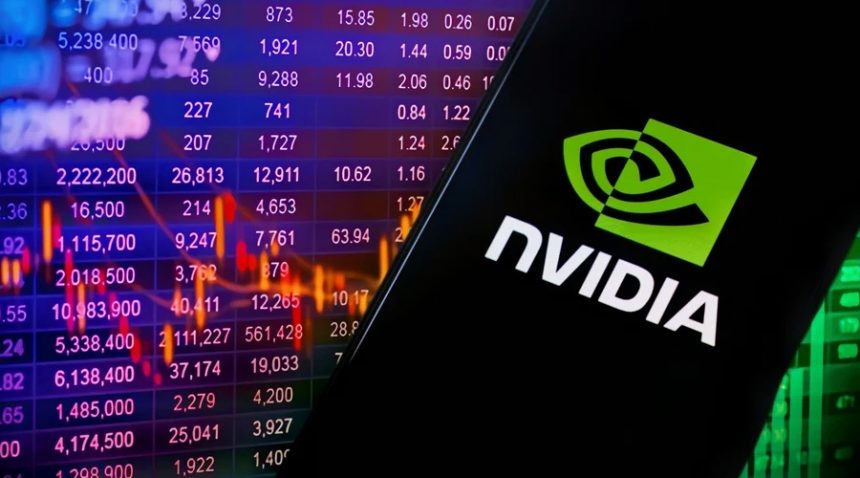Nvidia’s Q1 revenue stood at $44.1 billion, marking a 69% increase from the same quarter last year
Nvidia Corporation has once again impressed global markets with its record-breaking earnings for the first quarter of fiscal year 2026. The tech giant, known for its powerful chips and leadership in artificial intelligence (AI), reported a major jump in revenue and profits, surpassing analysts’ expectations.
Despite facing some challenges from export restrictions on its AI chips, Nvidia’s growth continues to be driven by massive demand from cloud companies, data centers, and AI developers across the world.
Outstanding Q1 Financial Results
Nvidia’s Q1 revenue stood at $44.1 billion, marking a 69% increase from the same quarter last year. This strong performance was largely driven by its data center business, which alone contributed $39.1 billion in revenue. That’s a massive 73% growth compared to last year.
The company also reported a net profit of $18.8 billion, showing a 26% increase from the previous year, even after accounting for a large one-time expense.
The expense came in the form of a $4.5 billion charge due to unsold inventory and purchase commitments related to chip restrictions in China. If not for this charge, Nvidia’s profits would have been even higher.
Earnings per share (EPS) stood at $0.81, but on an adjusted basis (excluding the China-related expense), EPS would have been $0.96.
Growth Fueled by AI Demand
The massive rise in Nvidia’s earnings is a clear sign of how important AI has become in the tech world. Companies in cloud computing, healthcare, automotive, and robotics are rapidly increasing their use of AI. Nvidia’s advanced chips and software are a top choice for powering these AI systems.
Big names in cloud computing like Amazon, Microsoft, and Google are all using Nvidia’s technology to build their AI infrastructure. Nvidia’s chips are considered essential for training large AI models, including generative AI like chatbots, image generators, and more.
Nvidia’s newest AI chip platform, Blackwell, is now being used in some of the world’s most powerful AI systems. The Blackwell NVL72 AI Supercomputer is one of the most advanced products of its kind, designed to run extremely complex AI tasks quickly and efficiently.
U.S. Export Restrictions to China
One of the few setbacks in this quarter was the impact of U.S. export restrictions on China. In April 2025, the U.S. government placed tighter limits on selling Nvidia’s most advanced AI chips to Chinese companies.
These restrictions led Nvidia to write off about $4.5 billion, representing chips that could not be delivered and materials already ordered but no longer usable. Additionally, about $2.5 billion in potential revenue was lost due to these unshipped products.
Even with these restrictions, Nvidia still managed to show exceptional growth, which demonstrates the company’s strong demand outside China and its ability to quickly adapt to changes.
Stock Market Response
After the Q1 earnings announcement, Nvidia’s stock price jumped more than 4% in after-hours trading. The company’s market capitalization — the total value of all its shares — reached approximately $3.4 trillion, making it the second most valuable company in the world, just behind Microsoft.
Analysts have responded positively. Many are raising their stock price targets and believe Nvidia could soon reach a $4 trillion or even $5 trillion valuation, especially if demand for AI continues to grow at the current pace.
Nvidia has also become the most traded stock on Wall Street, with investors of all sizes showing interest, from small retail buyers to giant investment firms.
Global Strategy and Expansion
To handle growing demand and reduce reliance on China, Nvidia is taking major steps to diversify its operations and sales markets.
Middle East Partnerships: Nvidia has signed new agreements in the Middle East, including large chip deals with technology firms in Saudi Arabia and the United Arab Emirates. One such deal includes selling 18,000 Blackwell chips to a Saudi-backed startup focused on developing AI products.
Focus on Sovereign AI: The company is working with several countries to help them build their own AI infrastructure. This approach, known as “sovereign AI,” aims to give governments more control over their AI development without relying solely on U.S.-based cloud providers.
Investment in Europe and Beyond: Nvidia is also exploring opportunities in Europe and other regions to expand its reach and reduce risks linked to geopolitical issues and trade restrictions.
Broader Industry Impact
Nvidia’s success is having a wide impact on the global tech industry. The company’s chips are not only powering AI but also accelerating growth in other sectors, such as:
Healthcare, where AI helps in medical imaging and drug discovery
Automotive, where Nvidia’s chips power autonomous driving systems
Finance, where AI models analyze markets and detect fraud
Manufacturing, where robots use AI to automate production
Nvidia’s rise is also benefiting its suppliers, partners, and even competitors. Many chip companies are racing to build alternatives, but Nvidia’s long lead in hardware and software gives it a strong competitive edge.
Looking Ahead
Nvidia’s future outlook remains highly positive. The company is forecasting even higher revenue for the next quarter and expects demand for its AI chips to keep growing.
There are still challenges ahead, including political tensions, export restrictions, and strong competition from other chip makers like AMD and Intel. But Nvidia’s continued investment in research, partnerships, and global expansion puts it in a strong position to lead the AI race.
With new AI applications being developed almost every day — from self-driving cars to intelligent robots and real-time translators — the need for powerful and reliable computing continues to grow. Nvidia is well-positioned to meet this demand and stay ahead of the curve.
Nvidia’s blowout Q1 results confirm its leading role in the global AI revolution. While some obstacles, like export restrictions to China, created temporary setbacks, the company’s solid fundamentals, groundbreaking technology, and expanding global partnerships have allowed it to achieve record-breaking growth.
The rise of artificial intelligence is just beginning, and Nvidia appears ready to be the backbone of this digital transformation.
As long as demand for AI keeps rising, Nvidia’s strong earnings, product innovation, and market leadership suggest that its upward journey may still be far from over.





